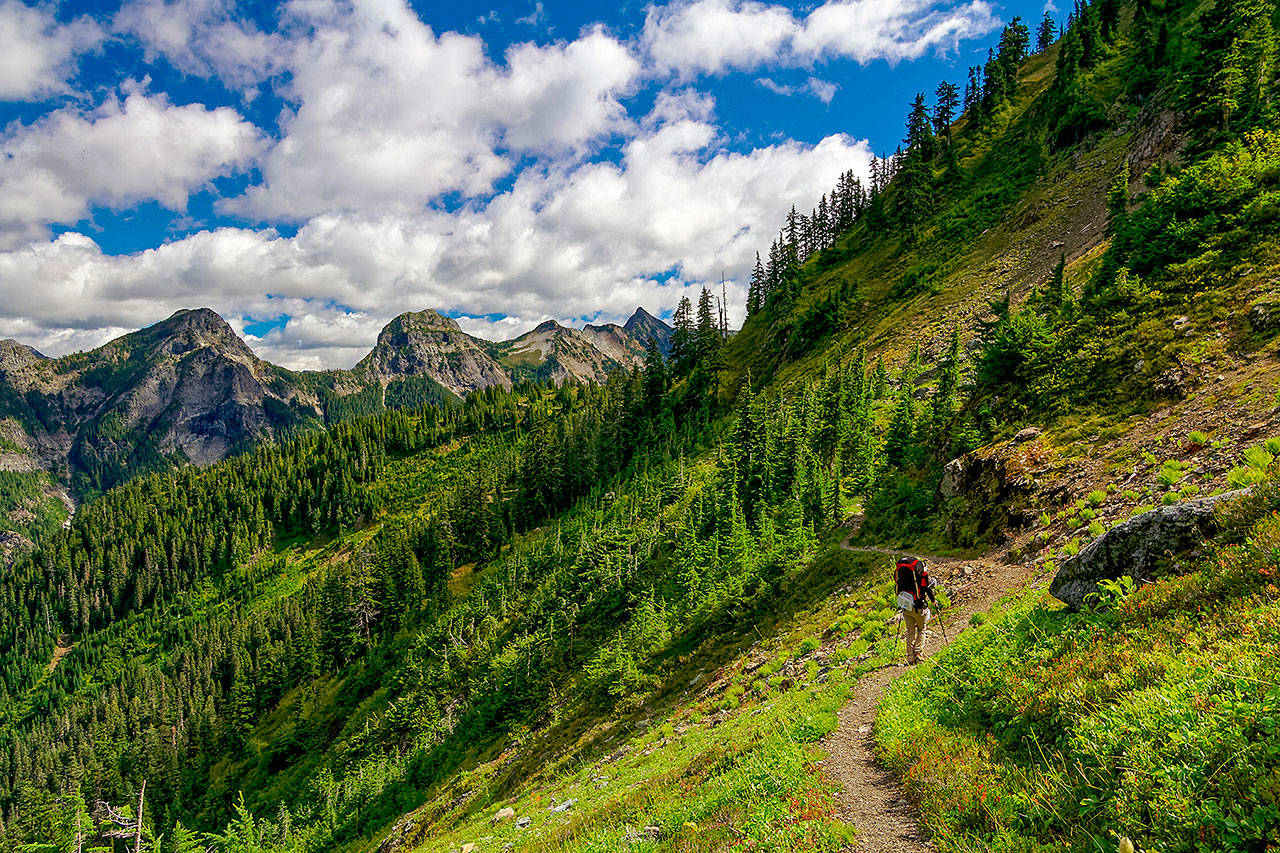When the sun comes shining, then I was strolling,
With the wheat fields waving, the dust clouds rolling,
The voice come a-chanting, and the fog was lifting.
This land was made for you and me.
— Woody Guthrie, “This Land Was Made for You and Me”
The folk song still sung by school kids nearly 80 years after it was written is easily understood as a celebration of the nation’s beauty and an invitation to explore and enjoy it.
But Guthrie’s words also imply a responsibility to protect and care for the lands made for you and me.
As the nation celebrates National Park Week this week through Sunday, there’s an opportunity to encourage action by Congress on two pieces of legislation that can honor that responsibility.
Congress — even in a time of political turmoil — took significant bipartisan action in February with the passage of a package of public lands legislation that included permanent authorization of the Land and Water Conservation Fund.
Created in 1964, through the efforts of Everett’s Sen. Henry M. “Scoop” Jackson, the fund — financed not by taxpayers but by royalties from offshore oil drilling — has provided millions of dollars each year for the purchase and preservation of public land and water projects throughout the nation, development at national parks and matching grants for park and public lands projects at the state and local level, protecting more than 7 million acres and funding $16.8 billion in projects throughout the nation.
The fund’s permanent reauthorization restores certainty to a program that had twice lapsed in recent years in partisan bickering over public lands, ending years of nearly automatic renewal and agreement on the need to fund acquisition, development and protection of lands for parks and conservation purposes.
This was a two-step process, however. Having restored Jackson’s fund, Congress now needs to put money into it. Even in years when it had bipartisan support, Congress also saw the fund as a handy pot of money for other needs, rarely allocating the full amount of royalty payments owed to it. As originally adopted, $900 million a year in royalty payments were to go to the fund, but last year for example, only $487.6 million was appropriated by Congress.
Legislation in the Senate would, like the fund itself now, permanently guarantee its revenue allocation, making the full $900 million available without the need for annual appropriations. Among the legislation’s co-sponsors is Sen. Maria Cantwell, D-Washington, who helped push the larger package of public lands legislation through the Senate last year during her tenure as chairwoman of the Energy and Natural Resources committee.
Where the Land and Water Conservation Fund and its full allocation will provide for park and public land conservation programs across the country, from national parks to community playgrounds, the nation’s national parks are in need of additional funding to address a long-standing backlog of maintenance needs, even as attendance and use of our national parks have continued to grow.
Nearly $12 billion in maintenance awaits adequate funding, an amount nearly evenly divided between crumbling roads and bridges and unsound structures; water, sewer and electrical systems; and deteriorating monuments and memorials. More than $427.6 million of the backlog is at national parks in Washington state, including $186 million at Mount Rainier National Park, $126.5 million at Olympic National Park, $22.5 million at North Cascades National Park and $4.3 million at Ebey’s Landing National Park on Whidbey Island.
As the deterioration of facilities goes unaddressed, park officials often must close roads and facilities, even as park use increases.
That’s a threat to a significant economic engine for the state and the nation.
More than 8 million people visited national parks in this state in 2017, spending $507.8 million in the gateway communities outside the parks. That spending supported 6,538 jobs and added $676.8 million for the state economy. Nationwide, more than 331 million visited U.S. national parks, spent $18.2 billion in local communities, supported 306,000 jobs and generated $435.8 billion for the U.S. economy.
Taking a cue from the Land and Water Conservation, legislation in the House would create a fund that would address more than half of that $12 billion backlog. Supported by eight of the state’s 10 congressional delegation members, including 1st District Rep. Suzan DelBene and 2nd District Rep. Rick Larsen, the Restore Our Parks and Public Lands Act would allocate $1.3 billion in annual royalty payments from all energy development — including oil, gas, coal and alternative or renewable energy development on federal land — for a five-year period, up to $6.5 billion. Of that fund, 80 percent would go to the National Park Service’s backlog, 10 percent to the U.S. Fish and Wildlife Service, 5 percent to the Bureau of Land Management and 5 percent to the Bureau of Indian Education for tribal school construction and maintenance.
Both pieces of legislation stand in contrast to a Trump administration budget that — even after the president signed the legislation for its permanent renewal — proposed a 105 percent cut to the Land and Water Conservation Fund; that’s less-than-zero funding.
Congress has previously considered other funding mechanisms, and legislation that would address the full $12 billion backlog seems more than appropriate now. But both proposals would represent a valuable restoration of funding.
The public has shown its support in recent polls for park and public lands funding. A 2016 survey by researchers at Colorado State University and Harvard University found more than 93 percent support protection of historical sites, trails, parks and open spaces, and the preservation of national parks.
And the public has shown its support for the protection and stewardship of parks and public lands by how often those lands are enjoyed and treasured by you and me.
Talk to us
> Give us your news tips.
> Send us a letter to the editor.
> More Herald contact information.

























